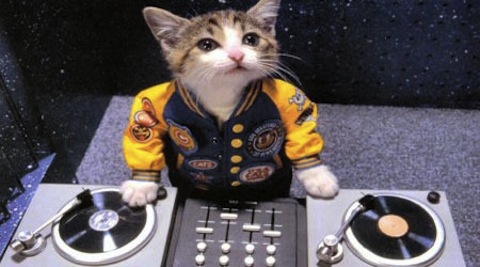New Yorkers always insist that the city is not an anonymous machine but actually just a series of small neighborhoods. We insist that we know our dry cleaner, our coffee shop guy, our grocery store cashier just as well as you all know yours.
Actually, that’s not true, we always insist that we know them even better.
Actually, that’s not true either. We New Yorkers are a narcissistic bunch. We insist that they know us even better. Trust me, your local dry cleaner does not care about you the same way my dry cleaner cares about me.
In any event, when I have lived in other places, one of the reasons you knew the “kid who bags your groceries” is because of some long generational history. The gossip you discuss as you head back to your car is along the lines of “Oh you know, that’s Johnny’s nephew. His momma went to school with…” Etc. Well no, we don’t have as much of that in Manhattan (although it is more common in the other boroughs). Our stories are a little bit different.
And I think it’s only fair that those of you who are not from a big city filled with people from all over the world be introduced to what some of our neighborhood knowledge looks like, and the center of it all is the local bodega.*
*Details have been changed to protect the innocent. Also, no, I do not actually believe that any of this is unique to New York. I promise. Okay, maybe a little bit. Nah, not really.
The Turtle Era
The Turtle Era was the best era. Turtle was the Day Manager when I first moved into my neighborhood. His first language was Spanish, and he spoke perfect English. He insisted that I only use Spanish and that he only use English. Because, you know, that’s how you improve. But he had also learned Korean, the language of the store’s owners, and Portuguese, because there was small Brazilian community in the neighborhood. The store was always perfectly kept while he was in charge. Well-stocked, clean. And the coffee. Dear god the coffee he made was perfect. He was funny, charming, handsome, confident, told a great story. I really wanted to drink with Turtle. All the time. The owner’s wife was confused about his name and called him Tut. Which stuck. About half of the customers called him Turtle, and about half called him Tut.
Turtle’s assistant was named Nick. Nick was quiet but polite. He was never completely happy with the questionable wage and hour policies of the owners, but you wouldn’t have known it. One of the nicest men I’ve ever known, with a genuine smile and a kick-ass mustache.
The night shift during The Turtle Era was run by a quirky older guy from rural somewhere. I don’t know where he was from, or what language he spoke, but he was differently from the country of some country. (You know how you can sometimes tell a rural accent even if you don’t know the language?) I was never sure what we were talking about when I went in, but I think we were talking about something. I don’t know what his name was. I’m not even sure how I could have asked. His assistant was a quiet guy from the pacific coast of Mexico. I don’t think I’ve ever heard him say more than two words. In fact, sometimes I didn’t even know he was there and then “POOF!” he’d be standing right behind you. Basically a not-very-haunting ghost of a man. You will not hear about him again because that is all I know, even though he is still there.
Turtle was lucky. He married for immigration status, or so it was implied, but he fell in love. They had an adorable little girl. His wife, a midtown professional, got a promotion that took her to New Jersey. He went with her, and they bought a big house for the family. Last I heard he was managing a restaurant out there and going crazy because he had never needed to drive before, and he didn’t have his driver’s license yet. But he was happy.
The Nick Era
Poor Nick. When he took over for Turtle, they didn’t hire a new assistant. So Nick had to do everything. And I don’t think they gave him a raise, not at first. But we gave him a quick primer on New York labor laws and how they did, in fact, apply to everybody. And then they did. He was so politely sad about it all. He would politely ask me what it was like to have a good job. He would listen to traditional music and count the hours until he could go home and rest and have a beer. He was sending money home to his wife, where she ran a farm. Each paycheck went to building up the livestock, building a fence, fixing a barn. Nick spoke a little English, and I speak a little Spanish. Between the two of us, we could figure it all out. Nick also had taken steps to learn how to make coffee from Turtle before he left. God I miss Turtle’s coffee.
Then someone called in a Housing Violation on his building, and the city discovered his illegal apartment. We offered him a little help to find a new place, but he politely refused. Before they could shut it down he discovered he had cancer. He decided that it would be best if he went back home. If he could get medical help, he could get it safely at home. If he could not, then he wanted to spend his remaining days on the farm with his wife. He knew that either way, once he crossed the southern border, he would likely never come back. No one has heard from Nick since he was getting a ride south from Atlanta with a friend.
The night shift did not change during The Nick Era, but I got to know the Country Man a little better. I still don’t know what we were talking about, but we talked a lot. When the store raised the prices on cigarettes he made a disgruntled face and refused to charge me the new price. He would always round my charges, refusing my fifteen cents here or my seven cents there. Either he was overcharging someone else or the owners just liked him, because he certainly wasn’t paying it out of his paycheck.
The Son Era
Good kid. Friendly, happy, got good grades, played in a soccer league on the weekends. New York Mets fan, but nobody’s perfect. The son had come in on occasion to fill in as necessary, but once Nick left, he took over the day shift. He had recently finished college and was applying to graduate schools. He insisted on calling me by my last name, which freaked me out. No matter how many times I tried to get him to stop, he couldn’t seem to do so. “Are you watching the game today Mr. LeSabre? Should be a great one!” During his tenure they hired a new assistant, a really young kid, Johnny, who spoke only Spanish at first. Johnny practiced his English like crazy. He would step behind the counter as often as possible and come up with the most unnecessarily complicated questions he could. Just to practice. Johnny seemed to believe that my life consisted solely of making a lot of money, going out on wild dates, and drinking as much as possible. He had no evidence for any of this.
Johnny met a girl that lived in another borough, and two weeks later he quit. A cousin of the son was hired to replace him, and he is still there. I think the cousin is confused about his job responsibilities. He seems to think he is a security guard at a bank because all he does is stand about three feet from the counter like a statue. No one seems comfortable telling him otherwise. Much dust has accumulated since the cousin started.
The Dad Era
And now we are in the Dad era. The son has gone back to school, and I’m stuck with grumpy under-paying, shitty-coffee-making dad. If you buy cigarettes, he won’t give you matches unless you ask. If you buy coffee, you have to ask for the napkin. God forbid you ask for a sleeve. You’d think you just tried to shake down the ATM machine. And he never smiles. He is a mean old man. (Sometimes he forces a smile, but you know that forced smiles are worse than no smile at all.) But I don’t really mind. We have our routine.
The older son is there on occasion too now. A character and a half. I appreciate that he does not care even a little bit. He would rather sit outside and smoke or rush home to his (admittedly gorgeous) new wife. Since Turtle left, he’s by far the person I’m most inclined to just hang out with for a bit. Because he smokes. And because he will inevitably go on some rant about something in the pop culture news. (He’s like a particularly incensed Crasstalk commenter now that I think about it.)
And recently, Country Man has gone from the night shift. His wife, back in the old country, has become terminally ill. He hasn’t seen her in years and wants to spend her last few months with her. He may come back when she passes away, but maybe not. I hope he does. I miss Country Man. Country Man’s replacement unintentionally sold cigarettes to minors on multiple occasions and got the store shut down for a week. The doors were locked for the first time in thirty years. They didn’t even know where the keys were.
The jarring feeling the next day when I went to buy my morning coffee, when, distracted by my email, I ran straight into a closed door and a big ol’ New York City notice, made me realize just how much a part of my life the little store on the corner is. Good or bad, happy or sad, it’s a part of my life, and a part of what keeps the city from feeling so anonymous. I’m no fool; I don’t pretend we are friends or even colleagues. But I know them, and they know me.
Images from here.



